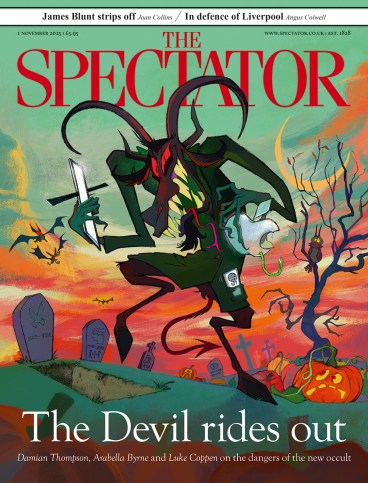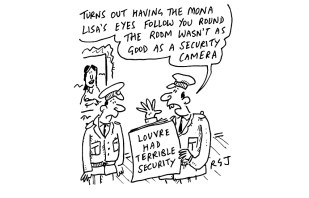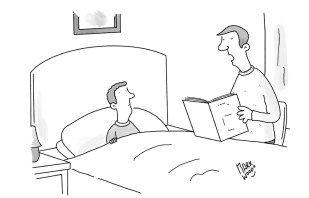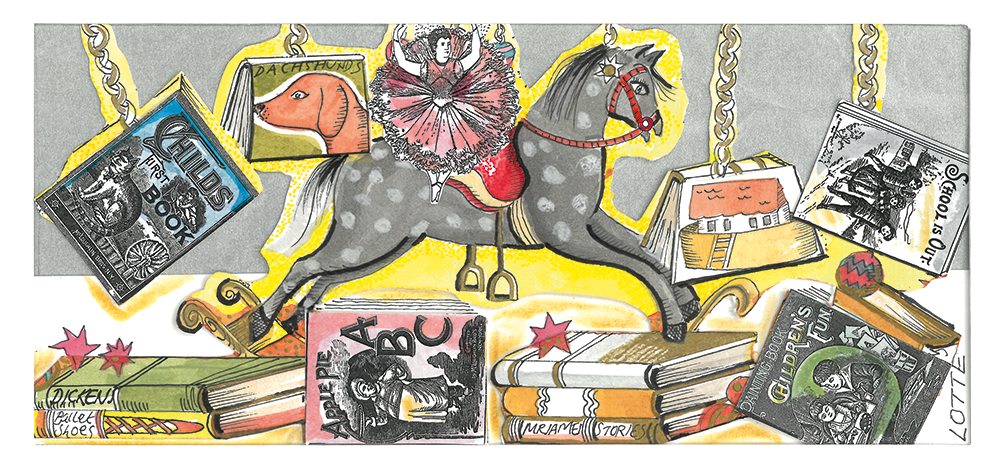
Antony Beevor
In Captives and Companions (Allen Lane, £35), Justin Marozzi has brought together a scholarly yet vivid history of slavery in the Islamic world in all its varied forms. Everything is covered, from the former slaves recruited by the Prophet, who achieved immense influence, to agricultural slavery, military conscription with Mamluks and Janissaries, the Barbary Coast corsairs who roamed the Mediterranean and the English Channel, and concubinage, right up to Daesh atrocities against Yazidi women. Slavery still exists in a number of countries and the dishonesty surrounding the whole subject has been clouded by the overwhelming emphasis on the Atlantic slave trade. It is a brave project, superbly researched and written, and Marozzi never puts a foot wrong.
I was also gripped by Ian McEwan’s What We Can Know (Cape, £22) – a philosophical novel masquerading as a bizarre dystopia of climate disaster as Britain descends, in semi-Atlantis fashion, beneath the waves.
Naomi Alderman
Among Friends by Hal Ebbot (Picador, £18.99). Two dear male friends – after many years of friendship one of them does something unforgivable. Or is it? What makes this novel work is how much Ebbot leaves out. He never comes into a scene a word too soon or stays a sentence too late.
Love’s Labour by Stephen Grosz (Chatto, £18.99). Another work from the master of writing about therapy. Whisper this sacrilege: he’s a significantly better writer than Irving Yalom. A book to savour, re-read and return to for new insights.
I am begging you to read Careless People (Macmillan, £22), Sarah Wynn-Williams’s account of her time in the top echelons of Facebook. It is fantastically gripping (it starts with a shark attack), hilariously funny and tells the truth about our new rulers, the tech billionaire elite. An essential book.
Death of an Ordinary Man by Sarah Perry (Cape, £18.99) is a moving, transportative journey through grief during the last years of Perry’s father-in-law. Impossible to put down or forget.
Clare Mulley
Stories of survival seem to have resonated with me this year. Anne Sebba’s The Women’s Orchestra of Auschwitz (Weidenfeld, £22) not only recounts these musicians’ intertwined stories with great sensitivity, it also explores the ethical questions that haunted the survivors once forced to play melodies in the darkest moments of the 20th century. The Safekeep by Yael van der Wouden (Penguin, £9.99), winner of this year’s Women’s Prize for Fiction, powerfully evokes another (this time fictional) story of survival, and of love, in a postwar Holland still in denial.
Although exploring a very different history, that of trauma medicine and organ donation, The Story of a Heart by Rachel Clarke (Abacus, £22) also interweaves tales of tragedy and survival. This moving book, winner of this year’s Women’s Prize for Non-Fiction, reminds us about the power of human empathy as well as the importance of the NHS.
Roger Lewis
Oscar Wilde’s grandson Merlin Holland’s After Oscar (Europa, £30) is both harrowing and uplifting – how the Wilde scandal wrought havoc on his friends and descendants until a century later everything came right and Oscar is commemorated in Poets’ Corner. The star of the book is Holland’s mother Thelma, who did Elizabeth II’s makeup for the coronation, and was convinced that her father-in-law was a much maligned heterosexual.
I also enjoyed The Wilder Shores of Dylan Thomas by Jeff Towns (Hmm Foundation, £35). It’s a handsome volume, beautifully illustrated, about the search for lost documents and out-of-the-way bits of biographical lore, ranging from an edition of Thomas’s poems inscribed by the author to Charlie Chaplin to a facsimile of Thomas’s death certificate: ‘Comatose upon admission. Never regained consciousness.’
It was cheering to see the reappearance of my early opus, juvenilia really, The Life and Death of Peter Sellers (riverrun, £30), with additional material and a preface by Steve Coogan. I used to think Sellers impossible and reprehensible. Now, at twice the age I was when I wrote the book and 11 years older than the Goon when he died, I think how enviable to have skimmed across life in his own way, doing whatever the heck he liked.
Jonathan Sumption
I would not normally recommend a law book in these pages, but Adam Tomkins’s On the Law of Speaking Freely (Bloomsbury Publishing, £24.99) is much more than a law book. It is an elegant account of the history of free speech, not just as a legal concept but as a cultural and political idea, in Britain, Europe and the United States. It is also bang up to date, with illuminating discussions of hate speech, online censorship and other topical and controversial issues. It deserves a much wider readership than just lawyers.

David Eltis’s Atlantic Cataclysm: Rethinking the Atlantic Slave Trades (Cambridge University Press, £30) is a brave venture into another controversial field. It makes no attempt to excuse a horrible trade; but it is a refreshing demolition of some of the more persistent myths about the Atlantic slave trade and Britain’s participation in it. It will of course be ignored by those who are more interested in making political points than in understanding the past, but the rest of us will find in it a reliable account of a complex story, based on a lifetime of serious scholarship.
Maggie Fergusson
Of all the titans to have won the David Cohen Prize – including Muriel Spark, Seamus Heaney and Tom Stoppard – John Burnside, though prolific, stole the least limelight. But as a poet, novelist and memoirist he was as great a genius as any, and his posthumous collection, The Empire of Forgetting (Cape, £13), is a treasure to carry in your coat pocket for regular enrichment. Did he know he was dying? Anticipation of ‘the darkness-to-come’ tolls through all 19 poems. But they are also infused with wonder and marvellous gleams of the uncanny:
When all the books are gone, there will be
nothing to remember but a single
porch light at the far end of the road,
where something live is moving in the snow…
There’s no revisiting his brutal, battered childhood; rather, celebration of a world he’s learned to love. Gathered too soon, maybe he’s still in our midst.
Duncan Fallowell
Not for the first time I’ve been sucked into the Romantic agony: E.T.A. Hoffmann by Ritchie Robertson (Reaktion, £12.99); Edgar Allan Poe by Richard Kopley (University of Virginia Press, £39.95); Free Radicals (Yale University Press, £11.99), Mike Jay’s account of nitrous-oxide tripping by Coleridge and others during the Napoleonic era; and a book I lost some years back, then found six months ago, and finally read, Nightmares of an Ether-Drinker by Jean Lorrain, translated by Brian Stapleford (Snuggly Books, £15.50).
Coming up for air, I was invigorated by the new, enlarged edition of Long Sunset (Podkin Press, £29), the behind-the-scenes memoirs of Anthony Montague Browne, Churchill’s private secretary from 1951 and the father, surprisingly, of Justin Welby: top-drawer intimacy done with wry poise (such a relief after the gewgaw-worship of Chips Channon). But I’m about to be pulled again into the velvet undertow of decadence by Merlin Holland’s After Oscar (Europa, £30), an autopsy on Oscar Wilde’s legend.
Hugh Thomson
Shattered Lands by Sam Dalrymple (William Collins, £25) was a mightily impressive debut which told the story of other divisions, such as Burma and the Gulf States, caused by the breakup of India – countries that in the past have themselves been partitioned off and ignored. Arundhati Roy, India’s finest writer by far, also revealed much, with characteristic candour and wit, in her long-awaited memoir Mother Mary Comes to Me (Hamish Hamilton £20). Of course she should be smoking on the cover.
Closer to home, in Ghosts of the Farm (Chelsea Green, £22), Nicola Chester used some lost diaries she came across to tell the beguiling story of a woman called Miss White learning the skills of English agriculture in the second world war. Chester is a nature writer who recognises, as George Orwell once commented, that it is as important to write about the people in the countryside as its animals.
Meanwhile, the admirably prolific Adam Nicolson kept to form in what was also one of the most beautifully made books of the year, Bird School (HarperCollins, £22), which makes you want to go out to listen to the birds in the hedgerows, particularly the blackbird, as it starts learning its song again each year. It’s a nature book refreshingly free of the personal suffering that the genre now seems to require. Maybe the backlash from the revelations about The Salt Path’s ‘false trauma’ will mean publishers no longer demand it –which might be a blessing for both readers and writers.
Allan Mallinson
In his maiden speech in the Lords in 1984, Harold Macmillan described miners as ‘the best men in the world. They beat the Kaiser’s army…’ One in five volunteers came from the coalfields of England, Scotland and Wales, winning more than 50 VCs. In Miners and the Great War (Pen & Sword, £29.99), Brian Elliott, from one of the great coalfields himself, tells their story and that of their communities movingly but without sentimentality.
After Newman: A Eulogy for Anglo-Catholics, 1845-1965 (Gracewing, £20) by Aidan Nichols OP is a history of an aspect of Victorian England often overlooked or misunderstood: the attempted recovery of a ‘Catholic and Reformed’ Church of England from a Protestant or even moribund one. Here are the Oxford men, the ritualists and liturgists, the sisterhoods and monasteries, social thinkers, theologians, architects, artists, poets, novelists, hymnodists, musicians and missionaries. Nichols says the book ‘has been written for Roman Catholics who may – I would say, who should – wish to know something about the body of Christians closest spiritually, liturgically, theologically and artistically to themselves’. It is, he says, ‘unapologetically a eulogy – and also something of an elegy, since much of the corporate life I describe is no more’. Anglicans may of course read it, but I think it would be with a profound sense of loss.
Graham Robb
Paul Lamb’s Of Thorn and Briar: A Year with the West Country Hedgelayer (Simon & Schuster, £15.86) is that rare variety of nature book: a compendium of accurate, useful information which expects the reader to be more interested in outdoor realities than in the author’s state of health. Without mirror-gazing wordiness, Lamb grippingly evokes the fascination of expert physical labour and its rewards – the flask of tea on a cold day, the maturing of the hedge, the company of animals. His quotation from D.H. Lawrence could have served as an epigraph: ‘I never saw a wild thing sorry for itself.’
Andrew Hussey’s Fractured France (Granta, £25) is a seriously amusing tour of troubled areas from Lille to Marseille that only an omnivorous political historian would visit. It contains valuable advice for the battle-hardened Francophile: ‘Take a bus or taxi to a fixed destination and start walking. Look as if you know where you are going and show no curiosity about whatever you might see on the way.’
Sara Wheeler
You can’t have too much Cavafy. Although fresh translators tune in for every generation, I always come back to Edmund Keeley and Philip Sherrard. So I was pleased to see Princeton University Press bringing out a new and revised edition of the Collected Poems (£15.99). Keep Ithaka always in your mind.
As for Cavafy, the journey not the destination counts for Joanna Pocock in Greyhound (Fitzcarraldo Editions, £14.99), her account of a road trip across the US by bus. The author reveals the multitudinous ways in which ‘huge swathes of the population are just a paycheck away from economic breakdown’, and concludes, all too plausibly, that ‘something in the US has broken’.
Mark Mason

Iain Dale’s Margaret Thatcher (Swift Press, £16.99) is aimed at those too young to remember the Iron Lady’s time in office. Please God let some of them read it and learn what can happen when a nation at least tries to balance the books.
I don’t normally go in for misery memoirs, but reviewing duties led me to I Swear by John Davidson (Doubleday, £18.99). It’s a fascinating, moving and occasionally hilarious account of what it’s like to live with Tourette syndrome. Unlike a lot of books, it’s got something to say and gets on and says it without trying to sound clever. When Davidson received his MBE from Elizabeth II, he wore trousers rather than the kilt (without underwear) he’d considered, because ‘knowing I was naked under there would be just too much of a temptation’. He did, however, when he was just feet away from Her Majesty, shout: ‘Fuck the Queen!’
Daniel Swift
I loved Vincenzo Latronico’s slippery and precise Perfection (Fitzcarraldo Editions, £12.99). It is a crushingly sad indictment of a rootless generation – digital nomads wandering through a generic Europe worrying about their stylish possessions and their social media presence – or perhaps it is a wry comedy of the same. Either way, it is funnier and far more moving than a book about the woes of late capitalism ought to be. One deadpan joke from many: the angsty couple at the heart of the novel share a social conscience which extends to taking an Uber only when it’s raining. It is short, a single-sitting read, and brilliantly translated by Sophie Hughes. Heaven!
Robert Douglas-Fairhurst
The two best biographies I read this year both dealt with the creative aftermath of a writer’s life. Philip Hoare’s William Blake and the Sea Monsters of Love (Fourth Estate, £22) is a dazzlingly inventive mash-up of memoir and cultural history that shows how Blake’s ‘ecstatic art’ made the world a far stranger and more beautiful place. At times opening it feels like playing a game of lucky dip – you never know quite what you’re going to get – and the result is both wildly eccentric and wonderfully beguiling.
Merlin Holland’s After Oscar (Europa, £30), written by Oscar Wilde’s grandson, describes with touching honesty what it has been like to live through the gradual change in Wilde’s reputation from unspeakable criminal to literary legend and queer icon. I read the opening pages with my jaw on the floor and finished it with a tear in my eye.
Dennis Duncan
I absolutely loved Vincenzo Latronico’s Perfection (Fitzcarraldo Editions, £12.99). It’s quite tightly modelled on Georges Perec’s Les Choses (1965) but updated from 1960s Paris to Berlin at the start of the 21st century. A couple of expat hipsters are alienated from real happiness by the importance they place on having the right stuff. The novel spans a decade or so, and since it’s all about material culture, the precision-dating of the details has to be spot on. Dreamweaver, monstera plants, moving to Lisbon because Berlin is over… It’s all so perfectly observed that one alternates between laughing at the shallow, fussy protagonists and cringing at how they’re into exactly the same things we all were. A funny and sad book then – and Sophie Hughes’s translation is pitch perfect – but most of all it moved me to see how relevant Perec can still be as the guiding light for this wry, miniaturist cultural critique.
Mark Amory
Retired, I read a lot, though slowly. It turned out that classics which I’d shirked for years (The Magic Mountain, The Man Without Qualities, Pale Fire) were indeed a bit of a struggle, so I retreated to the safer ground of Anthony Trollope’s The Way We Live Now, which was not. Forced to tackle The Adventures of Huckleberry Finn in order fully to appreciate James by Percival Everett (Picador £9.99), I found both impressive as well as enjoyable – as indeed are all the six or so of Everett’s books I have read.
Newer but not new is Charles Beaumont with his spy stories. I particularly liked the first line of A Spy Alone when I read it in a bookshop: ‘It is their shoes that give them away.’ So I bought it – and now there is also A Spy at War (both Canelo, £9.99).
Andrew Rosenheim
I liked and admired Lost in the Forest by Colin Heber-Percy (Gaia, £18.99), a successful screenwriter who in his early forties became a parish priest on the edge of Savernake Forest. Its ancient oaks are the springboard for Heber-Percy’s ruminations, and the result is a dense but inspiring mix of philosophical explorations and evocative naturalist descriptions. Few people figure in these modern day pensées, and I would have been keen to hear more from the author about his practice as a priest.
Of the many thrillers I have read this year for these pages, Havoc by Christopher Bollen (The Borough Press, £16.99) stood out for the exuberant quality of its prose and its recognition, put into practice, that sheer malice can be disturbingly funny.
Hilary Spurling
Baltic: The Future of Europe by Oliver Moody (John Murray, £25). Grim, prophetic and as gripping as any fictional thriller, this book by the Times’s Berlin bureau chief explores the causes and consequences of western reluctance to confront Putin’s escalating tactics of low-level aggression with anything approaching reciprocal military force. Moody argues persuasively that a policy of looking the other way and hoping for the best is unlikely to work any more effectively for the Baltic states of eastern Europe today than appeasement did for the UK in the 1930s. I found this deeply unsettling and often startling book hard to put down. And for anyone as fascinated as I am by the workings of English common law I recommend Robert Taylor’s wildly funny, often startling, at times jaw-dropping Pudding, My Lord: (North Eastern Circuit, £17, available from admin@northeasterncircuit.co.)







Comments